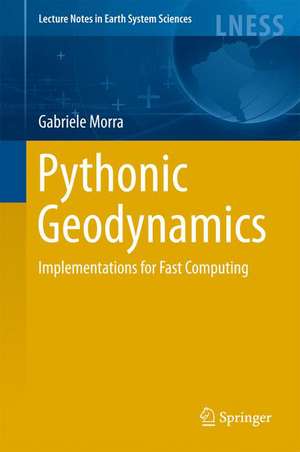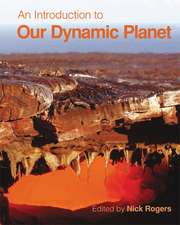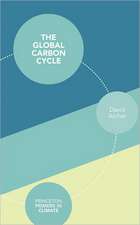Pythonic Geodynamics: Implementations for Fast Computing: Lecture Notes in Earth System Sciences
Autor Gabriele Morraen Limba Engleză Hardback – 2 aug 2017
arn by experimenting and experiencing, not by theory.
| Toate formatele și edițiile | Preț | Express |
|---|---|---|
| Paperback (1) | 501.96 lei 38-44 zile | |
| Springer International Publishing – 3 aug 2018 | 501.96 lei 38-44 zile | |
| Hardback (1) | 784.61 lei 6-8 săpt. | |
| Springer International Publishing – 2 aug 2017 | 784.61 lei 6-8 săpt. |
Preț: 784.61 lei
Preț vechi: 956.84 lei
-18% Nou
Puncte Express: 1177
Preț estimativ în valută:
150.14€ • 157.47$ • 124.98£
150.14€ • 157.47$ • 124.98£
Carte tipărită la comandă
Livrare economică 01-15 aprilie
Preluare comenzi: 021 569.72.76
Specificații
ISBN-13: 9783319556802
ISBN-10: 3319556800
Pagini: 207
Ilustrații: XVI, 227 p. 46 illus., 40 illus. in color.
Dimensiuni: 155 x 235 mm
Greutate: 0.52 kg
Ediția:1st ed. 2018
Editura: Springer International Publishing
Colecția Springer
Seria Lecture Notes in Earth System Sciences
Locul publicării:Cham, Switzerland
ISBN-10: 3319556800
Pagini: 207
Ilustrații: XVI, 227 p. 46 illus., 40 illus. in color.
Dimensiuni: 155 x 235 mm
Greutate: 0.52 kg
Ediția:1st ed. 2018
Editura: Springer International Publishing
Colecția Springer
Seria Lecture Notes in Earth System Sciences
Locul publicării:Cham, Switzerland
Cuprins
Bird’s eye view.- Visualization.- Fast Python: NumPy and Cython.- Mechanics I: Kinematics.- Mechanics II: Newtonian Dynamics.- Insights on the physics of Stokes Flow.- Lagrangian Transport.- Operator Formulation.- Laplacian Operator and Diffusion.- Beyond Linearity.- Trees, Particles and Boundaries.- Applications to Geodynamics.- The future.
Textul de pe ultima copertă
This book addresses students and young researchers who want to learn to use numerical modeling to solve problems in geodynamics. Intended as an easy-to-use and self-learning guide, readers only need a basic background in calculus to approach most of the material. The book difficulty increases very gradually, through four distinct parts. The first is an introduction to the Python techniques necessary to visualize and run vectorial calculations. The second is an overview with several examples on classical Mechanics with examples taken from standard introductory physics books. The third part is a detailed description of how to write Lagrangian, Eulerian and Particles in Cell codes for solving linear and non-linear continuum mechanics problems. Finally the last one address advanced techniques like tree-codes, Boundary Elements, and illustrates several applications to Geodynamics. The entire book is organized around numerous examples in Python, aiming at encouraging the reader to le
arn by experimenting and experiencing, not by theory.
arn by experimenting and experiencing, not by theory.
Caracteristici
Hands-on approach, with Python examples and practical exercises Covers visualization in 2D and 3D, NumPy Arrays, MPI, Jupyter Notebooks Diverse numerical techniques: Lagrangian, Particles in Cell, Tree Codes, Boundary Elements Includes supplementary material: sn.pub/extras


























